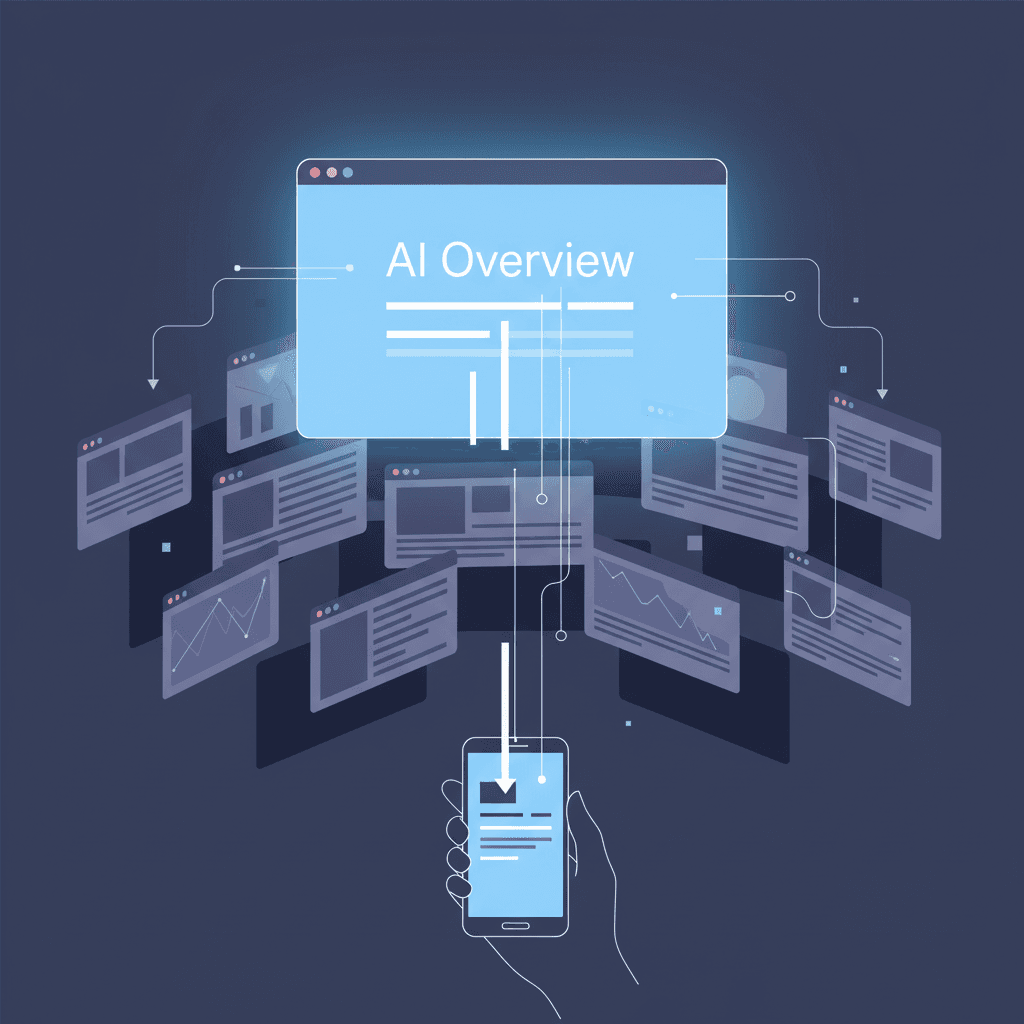Publishers Sue Google: AI Overviews Spark Existential Crisis for Journalism
Publishers sue Google over AI Overviews, sparking an "existential crisis" for digital journalism as traffic plummets.
September 16, 2025

Google is defending its new AI-powered search summaries against a rising tide of legal challenges and publisher outrage, framing the technology as a beneficial evolution of search while content creators allege it threatens their very survival. The tech giant insists its "AI Overviews," which provide direct answers to user queries at the top of the results page, are designed to create a better user experience and send valuable traffic to a diverse range of websites. This defense comes as a growing number of publishers report steep declines in web traffic and advertising revenue, culminating in a landmark lawsuit by Penske Media, the parent company of prominent publications like Rolling Stone, Variety, and Billboard. The conflict marks a critical inflection point for the digital information ecosystem, pitting the world's dominant search engine against the creators of the content that fuels its AI models.
At the heart of the publishers' complaint is the charge that Google is unlawfully using their journalistic content without permission to generate AI summaries that discourage users from clicking through to the original source websites.[1] In a lawsuit filed in a Washington, D.C. federal court, Penske Media alleges that Google is abusing its near-90% market share in search to compel publishers to allow their content to be used for these AI features, effectively cannibalizing their own traffic in exchange for visibility.[1][2] The lawsuit claims that AI Overviews now appear on approximately 20% of Google searches that would have previously led to its websites, contributing to a significant drop in search traffic and a decline of more than one-third in affiliate revenue since late 2024.[1][3] This sentiment is echoed across the industry, with data from Digital Content Next, a trade group including The New York Times and Condé Nast, showing that a majority of its member sites experienced traffic losses from Google search between 1% and 25% following the rollout of AI Overviews.[4] Publishers argue this "zero-click search" effect fundamentally erodes the business model of digital journalism, which relies on page views and ad impressions to fund content creation.[5][6]
In response to the lawsuit and widespread criticism, Google has mounted a vigorous defense, positioning AI Overviews as a necessary adaptation to changing user behavior.[7] Company executives argue that search users are increasingly seeking contextual, summarized answers rather than just a list of "10 blue links."[7][8] A Google spokesperson stated that AI Overviews help people find search "more helpful and use it more, creating new opportunities for content to be discovered."[2] The company refutes claims of widespread traffic collapse, with a head of Google Search stating that total organic click volume has remained "relatively stable" and that clicks originating from AI Overviews are of higher quality, meaning users tend to stay on those sites longer.[9][10] Google's public stance is that it wants to maintain a "healthy ecosystem" where both traditional links and AI summaries can coexist, sending traffic to a greater diversity of sites.[2][7] The company has dismissed Penske's lawsuit as having "meritless claims" and has vowed to defend itself against the allegations.[1][2]
The dispute highlights a profound dilemma for online publishers and the broader AI industry. Critics argue that publishers are trapped: if they opt out of allowing their content to be used for AI summaries, they risk vanishing from Google's dominant search results altogether.[2][11] If they remain, they hand over their valuable content for free to train and power a system that directly competes with them and diminishes their revenue.[2][6] This dynamic has been described as an "existential crisis" for an online news model that has long depended on search engine referrals.[12] While Google has reportedly begun exploring potential AI-related licensing deals with some media organizations, the fundamental tension remains.[13] The outcome of legal battles like the one initiated by Penske Media could set a crucial precedent for how copyright law is applied to generative AI and determine the future financial viability of creating high-quality, original content on the open web.[14]
Sources
[3]
[4]
[8]
[9]
[10]
[11]
[12]
[13]
[14]